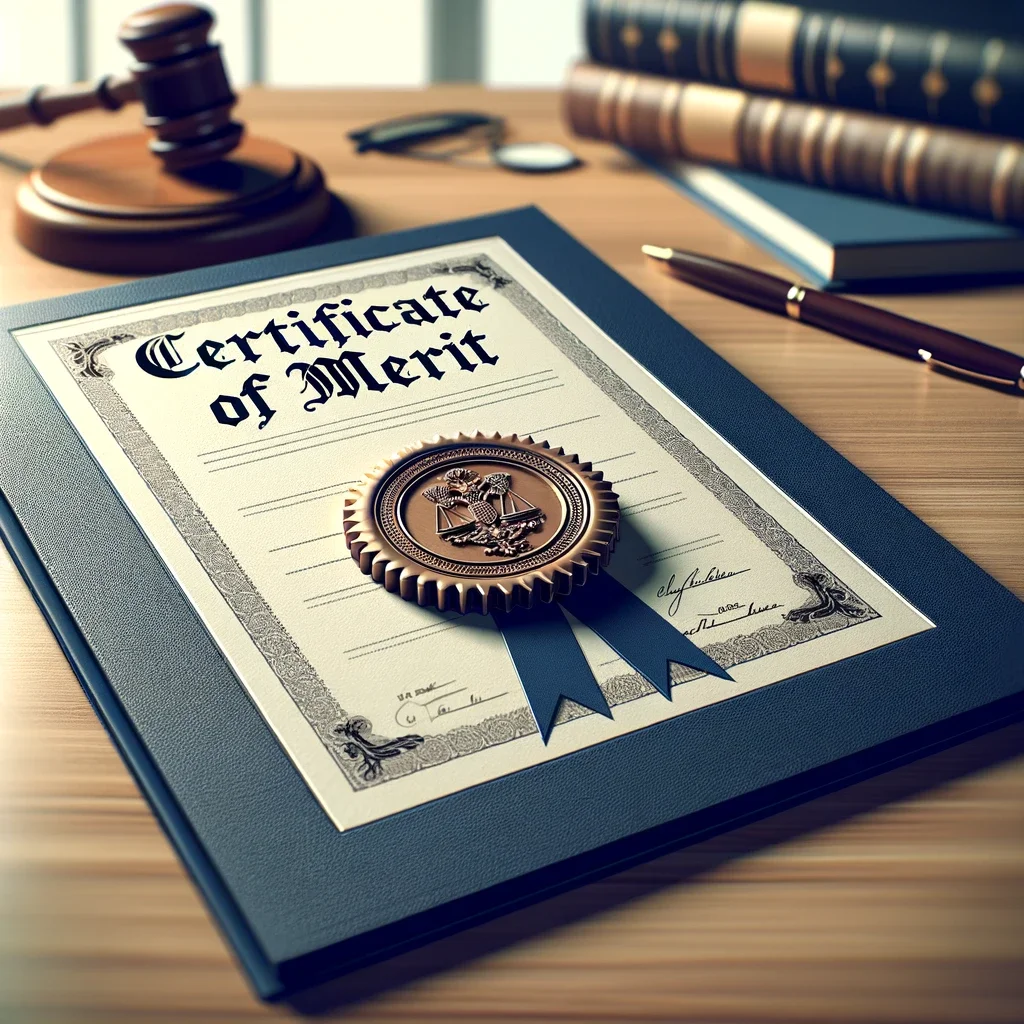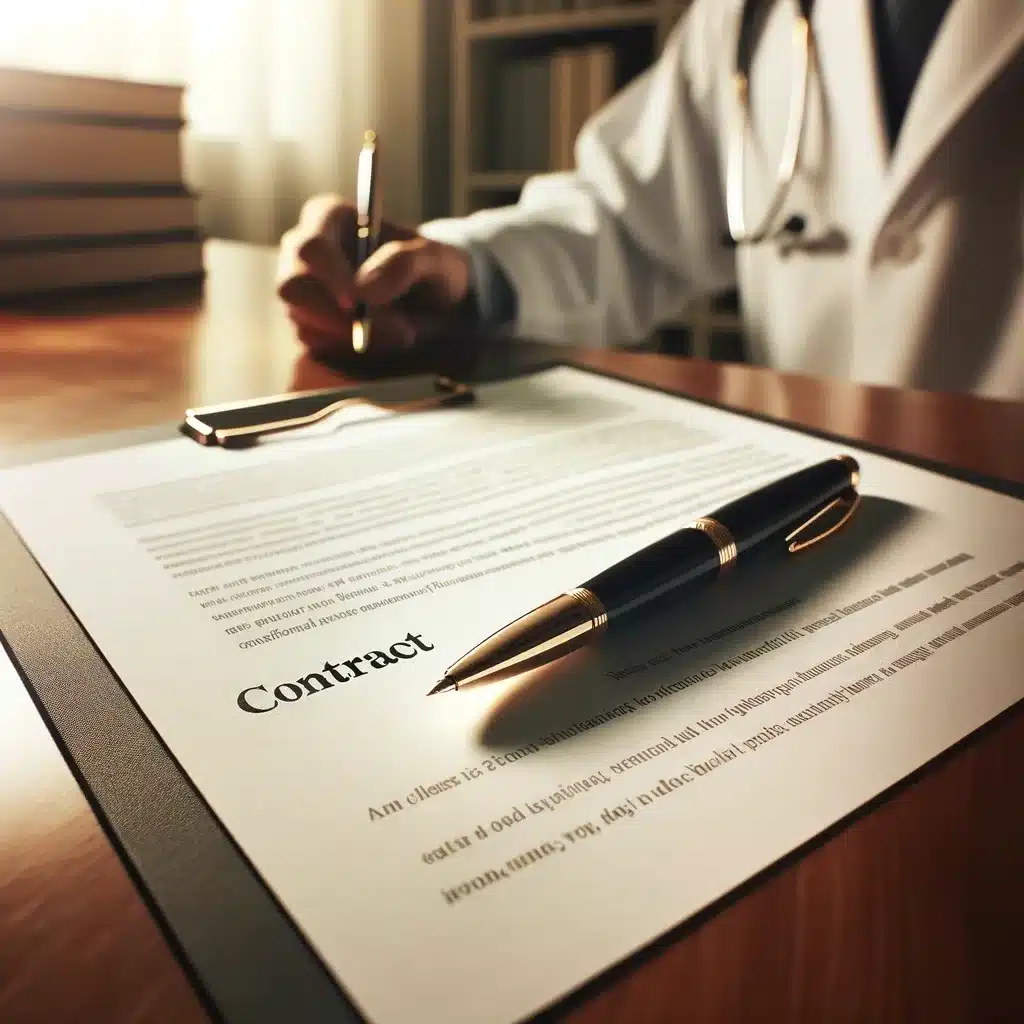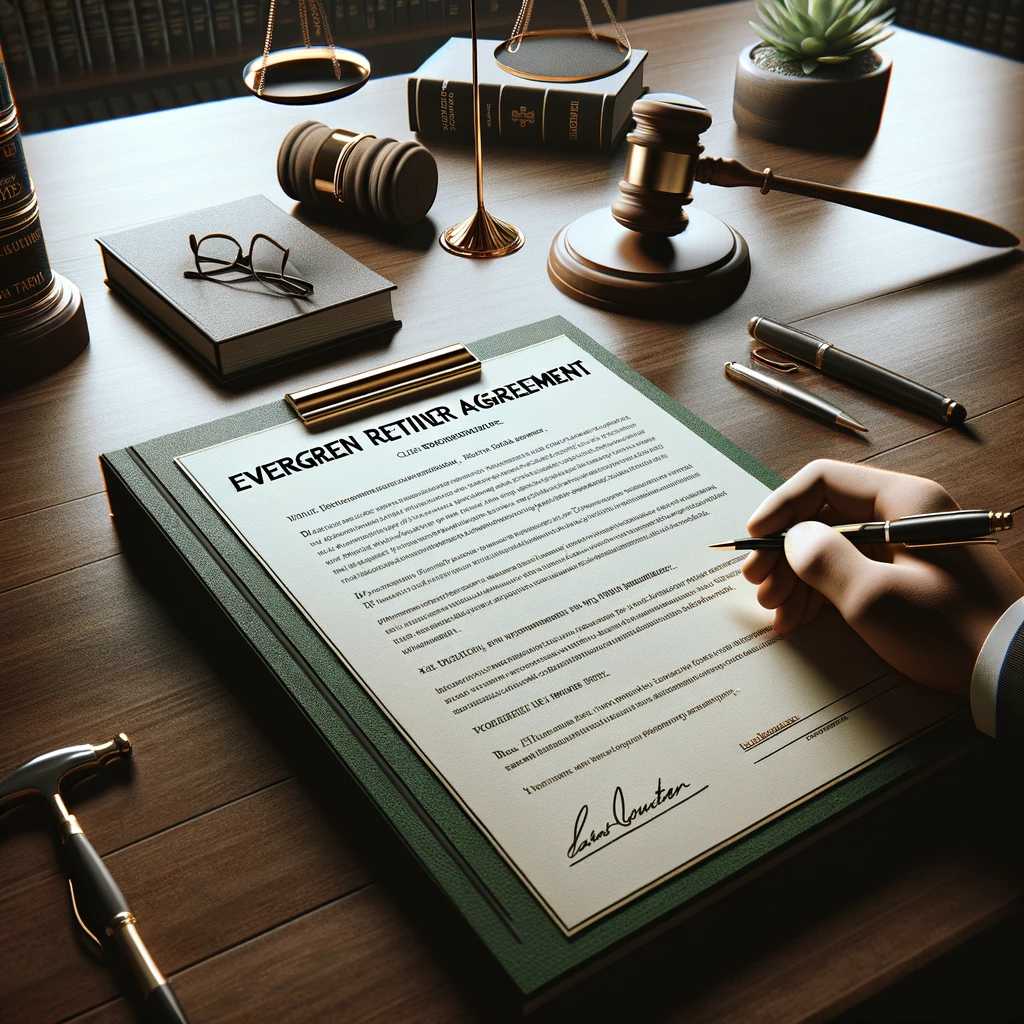A Step-by-Step Guide
Clarity is non-negotiable when it comes to an expert witness retainer agreement. Consider an instance where an agreement specifies a $1,500 non-refundable retainer due upfront, yet also outlines a cancellation policy offering refunds if cancellations occur two weeks before the scheduled deposition. This contradiction raises the question: Is the retainer refundable or not? Your agreement must eliminate ambiguity, ensuring clarity and conciseness. Crafting your rate sheet requires answering several crucial questions:
- What services will you offer?
- How much will you charge for these services?
- Will hourly rates vary depending on the service?
- How many hours do you require to be paid upfront as a retainer for each service?
- Will the retainers operate on an “evergreen” basis, needing replenishment?
- Are the retainers non-refundable, or does this apply only to specific services?
- If the retainers can be refunded, what conditions apply to the cancellation policy?
Addressing these questions head-on in your retainer agreement ensures both you and your clients have a mutual understanding of the terms, laying the groundwork for a successful professional relationship.
Clarifying the Services You Offer as an Expert Witness
The Spectrum of Services
As an expert witness, the breadth of services you provide is pivotal to your role in legal proceedings. Typically, these services span several critical areas:
- Consulting: Sharing expert advice and perspectives on case-specific issues.
- Reviewing Documents: Analyzing relevant documents, reports, or evidence critical to the case.
- Writing Reports: Compiling detailed reports that articulate your findings and expert opinions.
- Deposition Preparation: Ready yourself or others for depositions with strategic planning and practice.
- Depositions: Deliver sworn, out-of-court oral testimonies.
- Trial Preparation: Aid legal teams in formulating strategies and preparing for court proceedings.
- Trial Testimony: Provide expert testimony during trials.
- For Medical Experts: Conduct independent medical exams (IMEs), engage in continuing medical education (CMEs), and create comprehensive medical narratives.
Embracing a Full Suite of Services
To cultivate a thriving expert witness practice, embracing this full suite of services is essential. While it’s true some experts may limit their offerings, they are the exception. For example, some physicians may opt out of performing IMEs. Generally, when attorneys engage your services, they are assuming you’re fully equipped to handle the gamut of expert witness tasks.
It’s crucial to meet these expectations. If, for instance, you’re an expert in a case moving towards trial and you decline to provide a key service, such a refusal could seriously strain your relationship with the attorney and negatively impact your professional standing.
The Bottom Line
Your readiness to offer a comprehensive array of services not only solidifies your value to legal teams but also establishes you as a reliable, go-to expert in your field. Preparing to deliver all the services listed will position you for success in the expert witness domain.
Setting Your Fees: Simplifying Your Rate Sheet
Deciding on Charges for Your Services
When it comes to setting fees for your expert witness services, clarity and simplicity are key. You might wonder whether to assign different hourly rates to various services you offer. While it’s common to encounter rate sheets that are complex, with every service priced at a different hourly rate, adopting a straightforward approach is advisable.
Embracing the KISS Method
The KISS method (Keep It Super Simple) should be your guiding principle when determining your fee structure. You want your attorneys to understand your fees effortlessly at a glance.
Complex rate sheets not only consume valuable time as attorneys attempt to decipher them but also reflect on your professional communication. If your fee schedule is intricate and challenging to comprehend, it might lead attorneys to question whether your reports and analyses will be similarly difficult to understand.
Simplifying Your Approach
Therefore, when setting your fees, consider a simplified structure where your rates are clear and easily digestible. This approach not only facilitates smoother interactions with attorneys but also positions you as a professional who values clarity and efficiency in all aspects of your work.
Determining Retainer Hours for Expert Witness Services
Establishing Upfront Retainer Requirements
When it comes to setting retainer hours for your expert witness services, flexibility and clarity are paramount. Charging different retainer amounts for various services is both reasonable and common practice. For instance, you might decide on a three-hour retainer for conducting a record review and writing a report, based on the estimation that this is the typical duration required to complete such tasks.
Initial Retainer Considerations
Your primary objective with an initial retainer is to ensure it covers the cost of the service provided. Attorneys engage your services with the expectation of task completion. If you’re proposing a five-hour retainer for reviewing evidence and compiling a report, be confident you can deliver within those hours. If uncertain, communicate this openly to the attorney, clarifying that the initial retainer is to begin work, not necessarily to complete it. Setting clear expectations upfront is crucial for maintaining client satisfaction and avoiding surprises.
Specific Service Retainer Guidelines
- Record Review/Consultation: Estimate the time needed to perform this service and round up to the nearest hour. For example, if a typical document review and report writing take 2 hours and 45 minutes, set a three-hour retainer.
- Deposition: Preparation is key. Remind yourself to answer only the questions asked, without offering unsolicited information. Deposition preparation varies in length, often less than an hour, but the deposition itself can range from 30 minutes to several hours. A three to four-hour retainer is standard, covering both preparation and the deposition.
- Trial: While some experts only bill for actual court testimony time, a half-day minimum is advisable. Given the unpredictability of court schedules and the potential waiting and travel time, charging for a full day ensures you’re compensated for the time reserved for trial appearances, irrespective of the court’s timing.
Emphasizing Communication and Transparency
Clear communication about retainer requirements and the scope of services is essential for building trust and ensuring client satisfaction. By transparently outlining your retainer policies and adjusting expectations as needed, you foster a positive working relationship with attorneys, ensuring they understand the value and dedication you bring to their cases.
Implementing Evergreen Retainers in Your Expert Witness Retainer Agreement
Understanding Evergreen Retainers
Evergreen retainers are a proactive approach to billing, designed to ensure continuous coverage for the duration of your services. These retainers require replenishment once the initially agreed-upon hours are depleted. For instance, if you’re engaged with a three-hour retainer to review documentation and compile a report, but you anticipate needing at least two additional hours to complete the task, your agreement should clarify the process for adding more hours to the retainer.
The Importance of Clarity and Communication
The essence of successfully implementing evergreen retainers lies in transparent and ongoing communication with your client. It’s crucial to specify in your rate sheet—and verbally confirm—that once the initial retainer is exhausted, additional hours will be billed to ensure work continues uninterrupted. This approach not only maintains workflow efficiency but also builds trust through transparency.
Opting for Evergreen Retainers
We recommend using evergreen retainers for several reasons:
- Consistency in Cash Flow: Evergreen retainers ensure a steady flow of work and payment, facilitating better financial planning and resource allocation.
- Clarity for Both Parties: Clearly outlining the evergreen retainer policy in your rate sheet and communications avoids misunderstandings about the scope of work and billing expectations.
- Flexibility in Service Provision: This model allows you to adapt to the evolving needs of a case without halting work due to administrative delays.
Handling Non-Evergreen Retainers
If you decide against using evergreen retainers, it’s still vital to ensure payment is secured in advance for the estimated work. Your rate sheet should explicitly state that all services must be prepaid, and no final report or substantial findings will be released until payment for all rendered services is fully received. This policy safeguards your interests while reinforcing the value of your professional time and expertise.
Key Takeaway: Communication is Paramount
Regardless of the retainer model you choose, the cornerstone of a successful expert witness engagement is clear, consistent communication. Avoid any potential confusion by being upfront about your billing practices. Ensure attorneys understand they are committing to ongoing investment in your services, not just a one-time fee, to foster a collaborative and productive working relationship.
Navigating Non-Refundable Retainers for Expert Witness Retainer Agreement
The Basics of Non-Refundable Retainers
Non-refundable retainers, while ideal, require careful consideration and strategic implementation. Initially, you might opt for refundable retainers, transitioning to non-refundable options as your practice grows and your professional reputation solidifies. The essence of a non-refundable retainer is straightforward: once paid, it is not subject to refunds, underpinning its value to expert witnesses.
The Advantage of Non-Refundable Retainers
Non-refundable retainers offer a layer of financial security and predictability for expert witnesses. For instance, if an attorney engages you with a three-hour retainer for document examination and later decides that a report is unnecessary, the full retainer amount remains yours, regardless of the actual hours spent. Similarly, if a case settles before a deposition or trial for which you’ve been retained, the non-refundable retainer compensates you for the time you’ve set aside, regardless of its eventual non-use.
Understanding the Expert Witness Landscape
The reality of expert witness work is that many cases settle before reaching court, often shortly before scheduled depositions or trials. Attorneys need you to be available on the chance that the case proceeds, requiring you to reserve time that could otherwise be allocated to other revenue-generating activities. Non-refundable retainers thus ensure you are compensated for this reserved time, acknowledging that your availability has inherent value.
Balancing Retainer Policies and Market Realities
While non-refundable retainers protect your time and ensure payment for your availability, they may also influence an attorney’s choice of experts. Some may prefer experts who offer refundable retainers, posing a consideration for how you position your retainer policy within the market.
The Importance of a Strong Cancellation Policy
Regardless of your retainer type, implementing a robust cancellation policy is essential. This policy safeguards against last-minute case settlements, ensuring you’re compensated for your reserved time and effort. Such policies underscore the principle that attorneys are investing in your time, recognizing the finite nature of your availability and the premium placed on it.
Conclusion
In navigating the decision between non-refundable and refundable retainers, consider the balance between securing your interests and remaining competitive in the expert witness field. Your retainer policy should reflect your professional standing, the demand for your expertise, and a fair approach to compensating your time and knowledge. As your reputation grows, you may find greater flexibility in enforcing non-refundable retainers, enhancing your practice’s financial stability and predictability.
Crafting a Fair Cancellation Policy for Expert Witnesses
The Role of Cancellation Policies
While non-refundable retainers simplify the financial aspects of expert witness engagements, not all experts choose this route. If you opt for a more flexible approach to your pricing and retainer structure, establishing a clear cancellation policy becomes essential. This policy is particularly crucial given that many legal cases are resolved outside of court, often just before key events like depositions or trials.
Structuring Your Cancellation Policy
A well-defined cancellation policy protects your time and ensures fair compensation, even when case dynamics shift unexpectedly. We recommend a cancellation policy that strikes a balance between fairness to the attorney and respect for your professional commitment. Specifically, a policy offering:
- A 50% refund for cancellations made 8-14 days before the scheduled service.
- No refund for cancellations within 7 days of the scheduled date.
This framework prevents ambiguity, especially compared to policies that refer to “one to two weeks prior” without specifying exact timeframes. Such vagueness can lead to disputes, particularly for cancellations occurring around the 7-day mark.
Why This Policy Matters
Adopting a cancellation policy with clearly defined terms minimizes potential confusion and ensures both parties have a mutual understanding of the financial implications of schedule changes. This policy acknowledges the reality that most legal cases settle before reaching critical junctures like depositions or trials. By compensating you for the time you’ve reserved (and potentially turned down other opportunities to keep available), it underscores the value of your expertise and availability.
Flexibility Within Your Policy
While the suggested cancellation policy serves as a solid starting point, feel free to tailor the specifics to better match your practice’s needs and the expectations of your clientele. The objective is to find a middle ground that respects your time and expertise while also accommodating the unpredictable nature of legal proceedings.
However, a strong cancellation policy is not just a financial tool but a reflection of your professionalism and respect for the legal process. It communicates to attorneys that while you are committed to supporting their cases, your time is a valuable resource that warrants protection. Crafting and communicating this policy clearly from the outset of any engagement sets the tone for a respectful and productive professional relationship.
Conclusion: Navigating the Expert Witness Retainer Agreement Landscape
Crafting an expert witness retainer agreement is a nuanced process that demands attention to detail, clarity, and strategic thinking. This guide has walked you through the essential components of such an agreement, emphasizing the importance of clear communication, fair pricing, and respect for both your time and the legal process.
Key Takeaways
- Clear and Concise Agreements: Eliminate ambiguity in your retainer agreements to ensure mutual understanding and prevent potential disputes. Be explicit about the terms, especially regarding non-refundable retainers and cancellation policies.
- Service Spectrum: Embrace a comprehensive range of services to enhance your value to legal teams. While specializing or excluding certain services is an option, availability for the full suite typically expected of an expert witness is crucial for success and credibility.
- Simplified Fee Structure: Adopt the KISS (Keep It Super Simple) principle for your rate sheet. A straightforward fee structure not only aids in transparency but also reflects positively on your professionalism.
- Retainer Requirements: Determine upfront how many hours you need as a retainer for each service, ensuring it covers the cost of your time and expertise. Communicate any additional time requirements clearly to avoid surprises.
- Evergreen Retainers: Consider implementing evergreen retainers for ongoing engagements, ensuring a continuous workflow and compensation. Transparent communication about this policy is vital for maintaining trust with your clients.
- Non-refundable vs. Refundable Retainers: Weigh the benefits of non-refundable retainers against the potential need for flexibility in your practice. Establishing a strong cancellation policy can mitigate the risks associated with more flexible retainer types.
- Cancellation Policy: A well-defined cancellation policy safeguards your interests, particularly in the fluid landscape of legal proceedings. It ensures fair compensation for your reserved time, even as case directions change.
Even the Best Expert Witness Retainer Agreement Will Not Eliminate Payment Disputes
While structuring a simple, easy to understand expert witness retainer agreement is critical, the fact remains it won’t guarantee payment. Therefore, you should always insist on receiving payment in advance. You can learn more about that here. The Importance of Getting Paid in Advance.
Final Thoughts
The expert witness retainer agreement is more than a formal requirement; it’s a foundation for professional relationships in the legal arena. By addressing each component of the agreement with thoughtfulness and precision, you set the stage for successful engagements that respect both your expertise and the legal process. Remember, your agreement is a reflection of your professional identity—it should communicate your value, protect your interests, and clarify expectations for all parties involved.
Navigating this landscape with care and strategic insight not only enhances your reputation as an expert witness but also contributes to the overall efficacy and fairness of the legal system you serve.






